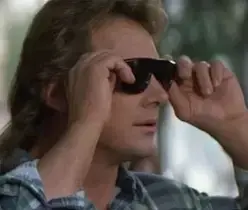Pretty neat article, wanted to share.
Nelson was credited as a science advisor and fully supported the film, as well as its 1978 sequel, Jaws 2. But over the next two decades, as Nelson’s research career took off, he would flip the script about sharks, bringing them out of the dark realm of fevered imagination into the clear light of science. By researching shark behavior up close for the first time, and making countless documentaries that allowed people on their couches into the underwater world he loved, he began to change people’s minds. A deadly, despised predator with a face full of teeth began to seem vulnerable, even elegant, a critical choreographer of the ocean ecosystem. By the time Nelson died in 1997, sharks had become the focus of conservation programs across the planet.

Interesting, they really should tell this guy, who last Sunday was gouged by a great white off san diego, in his torso, hand, and legs, tell him, and the hundreds of other shark bite victims it’s all movie propaganda. Sharks are sweet little cinnamon rolls never did nothin to nobody.

This is such a dishonest reading of the text that I suspect you didn’t read it at all.
Nobody said that shark attacks don’t happen, just that they are rare and that sharks are incredibly ecologically important. “Sharks can, but almost certainly won’t hurt you” and “sharks are ecologically important” are only statements at odds with each other if your goal is to turn the entire planet into a daycare.
I’m not sure what the purpose of this comment is. Sharks are insurmountably important for the oceanic ecosystem and the historic methods of research and development are really interesting. You have a greater chance of drowning at the beach, no question.

